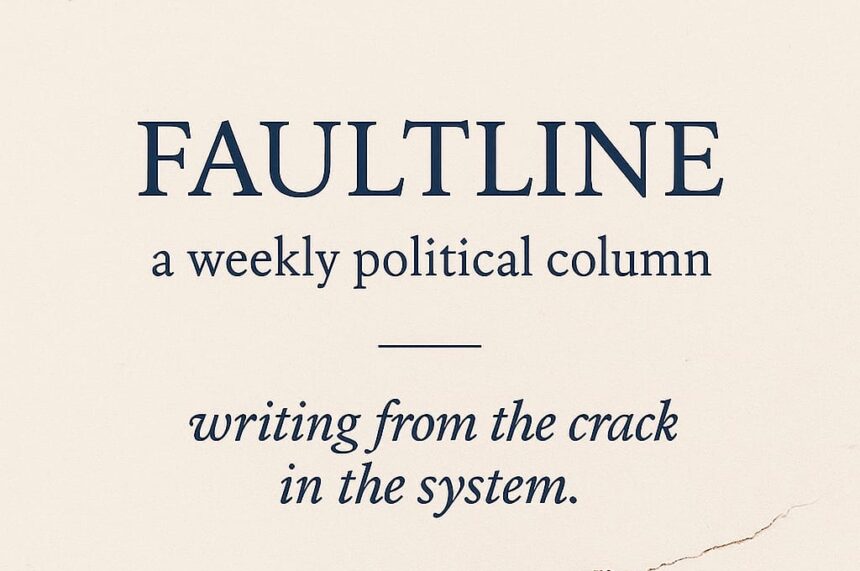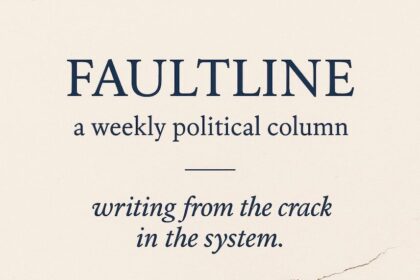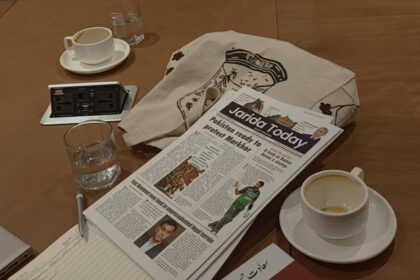On days when I am more conspicuously troubled than usual, I imagine this Joan Didion quote reaching into the crevices of my chest, unchurning all its politics and rage (and the softness that conjoins the two), and patting my bones into the gentle lull of a half-empty consciousness: When asked about using good silver every day, she assuredly replied, “Well, every day is all there is.” This sentence, as notoriously mundane as it risks falling short of particular academic squabbles, quite literally defines the fortunate loneliness of everyday existence, and what being a woman does to this magical experience.
For so long, we have been conditioned into believing that being alone is a punishment, a capital indictment aimed at reducing us to our most primal instincts—that of the communal belongingness. I have one written essay after another defending this very concept, asserting the essentialness of community, and how it is the ultimate price we must pay for the radical change we desire. And I stand by it. There is, however, a not-so-unique (anymore) beauty in recognising that false dichotomies, above everything, are false. That while you can truly take a chance at building something as abstract as interpersonal relationships, its very existence and intrinsic essence are dependent on the most tangible human experience we continuously deny ourselves.
The older I get, the more I suspect that the stories women tell themselves—about friendship, love, and belonging—are more often than not survival strategies conjured to unsharpen the otherwise obtuse edges of an unpayable tax: the loneliness tax. Every time a woman decides she no longer wants to exist as an ornamental piece of taxidermy, compliant in the gentle suicide of self-worth, and above all, comfortably apolitical in her everyday associations, she is presented with a cheque, one that all the mercenary ventures of the world cannot rid her of. Because while everything can (and is) subservient to wealth, this condition is so sacredly manufactured for women that even monetary solutions fall short of any real results. One wonders whether Marxist feminism would regard this as a triumph yet.
The bill arrives as a quiet nod: first you unsettle the table with your “too opinionated” opinions; next, you issue an apology for the audacity that consumed you when you decided to be a passionate human. Truthfully, I have been paying this tax for years, mostly without naming it. To treat creation as your religion, and its suffering as your god means few will remain in the room with you when the work becomes more than an accessory to your personality. The tiny, quirky peculiarities become points of contention so remarkably obvious, you reach a new crossroads every week, give or take. They love you as long as your passion does not become joy and instead manifests continuously as a housecat that can be tucked away under the armchair at the end of the day, not the unruly horse that refuses to settle down. There I go with the animal euphemisms again.
The loneliness tax is gendered. Not only does it outcast women who refuse to soften their edges, but it also apprehends the ones who live like they are not auditioning for approval. Who do not fear being described as “exhausting” and whose intellectual lives do not teeter at the shores of what counts as “palatable”. In a way, each
lack of compromise, each refusal to dilute an argument, each ruthless devotion to one’s own principles (and, in a way, personal aesthetics), and each bout of exhaustion following these associations is a step towards the internal joy Sontag and Lorde seem to talk about, rarely missing its complementary alliance with more solitude.
Yet, I find myself paying it willingly. And I will continue to do so, because the opposite is blasphemous. To defy the tax would mean bargaining away the very marrow of my life, creative or mundane. Because doesn’t the radical truly stem from what is often the most ordinary? In the heart of this convulsion lies a simpler reckoning, beating away with each microexpression: do not make yourself digestible for the convenience of the masses.
The truth is, there will always be a room refusing to carry your politics. But that does not mean you shed them entirely. Because here is the heresy no one wants to admit out loud: loneliness, when claimed, chased, pursued like a phantom lover, rather than simply endured, becomes worship. It gets the dangerous work done: uninhibited in its violence, flawless in its execution. The tax buys you a room with no witnesses—a room of your own—and where you are allowed to be feral and unreachable. While your silence will certainly not protect you, your half-hearted companionships will slow you down. This chatter will become white noise, and there will be space for you to sit down and stare at a wall, letting yourself catch a thought before it drowns in intellectual nostalgia. I call it rehearsal for freedom.
Of course, it does not feel glamorous. It tastes like bad airplane coffee, half drunk in the middle of the day, surrounded by moodboards that will never see the light of day, and marker tips that dry out before your plans do. But the aftertaste—of having almost given birth—lingers for weeks. In this precisely minimal space, the ordinary reveals itself. That walk to class becomes an editorial. The late-night text translates into a manifesto.
And the horse? Still untame, bolting straight between layouts and columns, refusing to be defined. The tax is steep, yes. But I tend to overpay.












